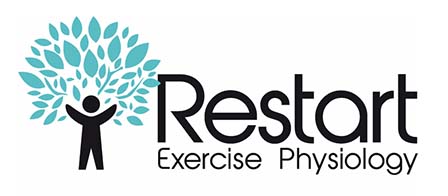In 2020-21 there were 2.8 million surgeries in Australia. This year it will be closer to 3 million. Around 8% of these surgeries will be for emergency care, the most common surgeries being appendicitis, hip fracture and heart attack. The remaining 92% of surgeries are likely to be for elective surgeries, which take place for a wide-variety of reasons from joint replacements and rectifying injuries to cancer removal.
Evidence suggests post-operative exercise training and rehabilitation should be considered for recovery. Goals will differ depending on the surgery or injury however rehabilitation always aims to regain or at least improve functional ability. It’s important to utilise the window of opportunity post-surgery to optimise your recovery without putting your body at risk of further injury. That is where an Exercise Physiologist can help!
Should I go through post-surgery rehabilitation alone or team up with an Exercise Physiologist?
People who undergo surgery have the choice to go through rehabilitation alone or to team up with an allied health professional like an Exercise Physiologist. An Exercise Physiologist is a registered health professional trained in post-surgery rehabilitation exercise. Going it alone is certainly possible, but there are numerous significant benefits to teaming up with a rehabilitation specialist. For example, we often work very closely with patients who have undergone a joint replacement surgery, particularly knee and hip replacements.
A recent study looked at this very idea in abdomino-pelvic cancer patients. The study investigated the effectiveness of an allied health rehabilitation program for these cancer patients’ post-surgery. Patients’ exercise capacity, muscle strength, physical activity levels, pelvic floor symptoms, anxiety and depression, and health-related quality of life score were measured before intervention, immediately after intervention and 6-months later. Immediately following the treatment, patients in the allied health supported group had improved on exercise capacity, handgrip strength, bowel symptoms, physical activity levels, depression, and health-related quality of life. The improvements in all these outcomes were sustained over 6 months post-surgery.
Additionally, it is often advised to complete a bout of ‘pre-hab’, or pre-surgery rehabilitation. Building strength and mobility leading up to your surgery can improve post-surgery outcomes and lead to quicker recovery times!
Here are some ways an Exercise Physiologist can help with your post-surgery rehabilitation
Provide a roadmap
Teaming up with an Exercise Physiologist for post-surgery rehabilitation means you’re provided with a personalised plan to optimal recovery. This includes specific exercises to do, when to do them and for how long as well as things to watch out for. This program is custom-built to your situation. For instance, your surgery type, age, strength and overall fitness level.
So rather than guesswork, you’ll know exactly what to do to strengthen or restore movement in the area of your body being rehabilitated. You’ll also know when to modify or add resistance to exercises and what to expect along the way, e.g., how speedy the recovery should be.
Ensure you’re doing exercises correctly
As well as knowing what exercises to do, it’s important to know you are doing the exercise routines safely and effectively for your situation. This is where an Exercise Physiologist proves invaluable to your recovery. During routine checkups, they will check your strength, mobility, flexibility and posture to make sure you’re loading your body effectively to strengthen and rehabilitate while avoiding strain and risking further injury.
Test and modify based on performance
Another big benefit of these routine checkups is that your Exercise Physiologist can tweak and modify the direction of your rehabilitation based on your day-to-day performance. For instance, an exercise that works for most may not be as beneficial for you. An Exercise Physiologist can pick up on this and provide an alternative exercise better suited to your situation. The same is true if you happen to do an exercise with too much ease. Your Exercise Physiologist will identify this early and offer alternative approaches and specific exercises to ensure you’re maximising your recovery.
Want to learn more about how an Exercise Physiologist can help with your post-surgery rehabilitation? Contact us on 1300 899 757 or book now.
Disclaimer
All information is general and is not intended to be a substitute for professional medical advice. Restart Exercise Physiology can consult with you to confirm if a particular treatment or procedure is right for you.

0 Comments